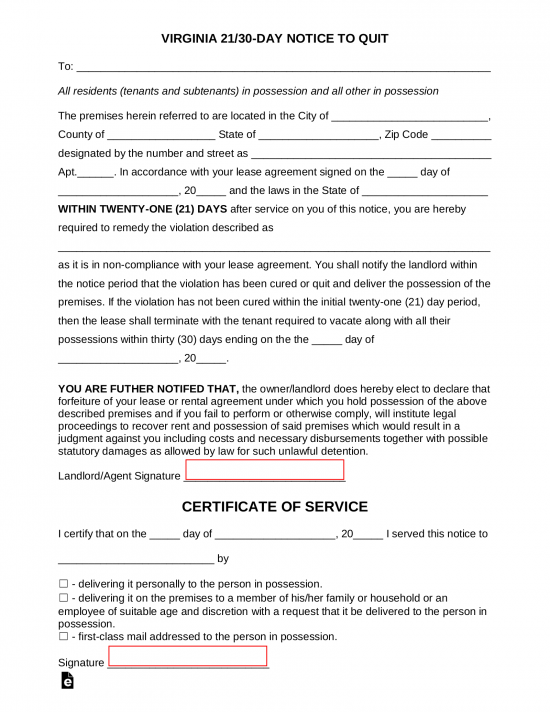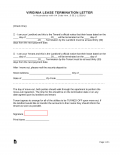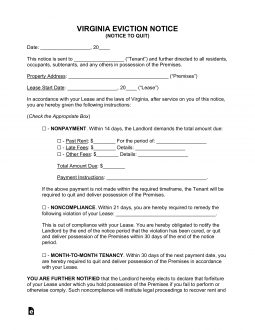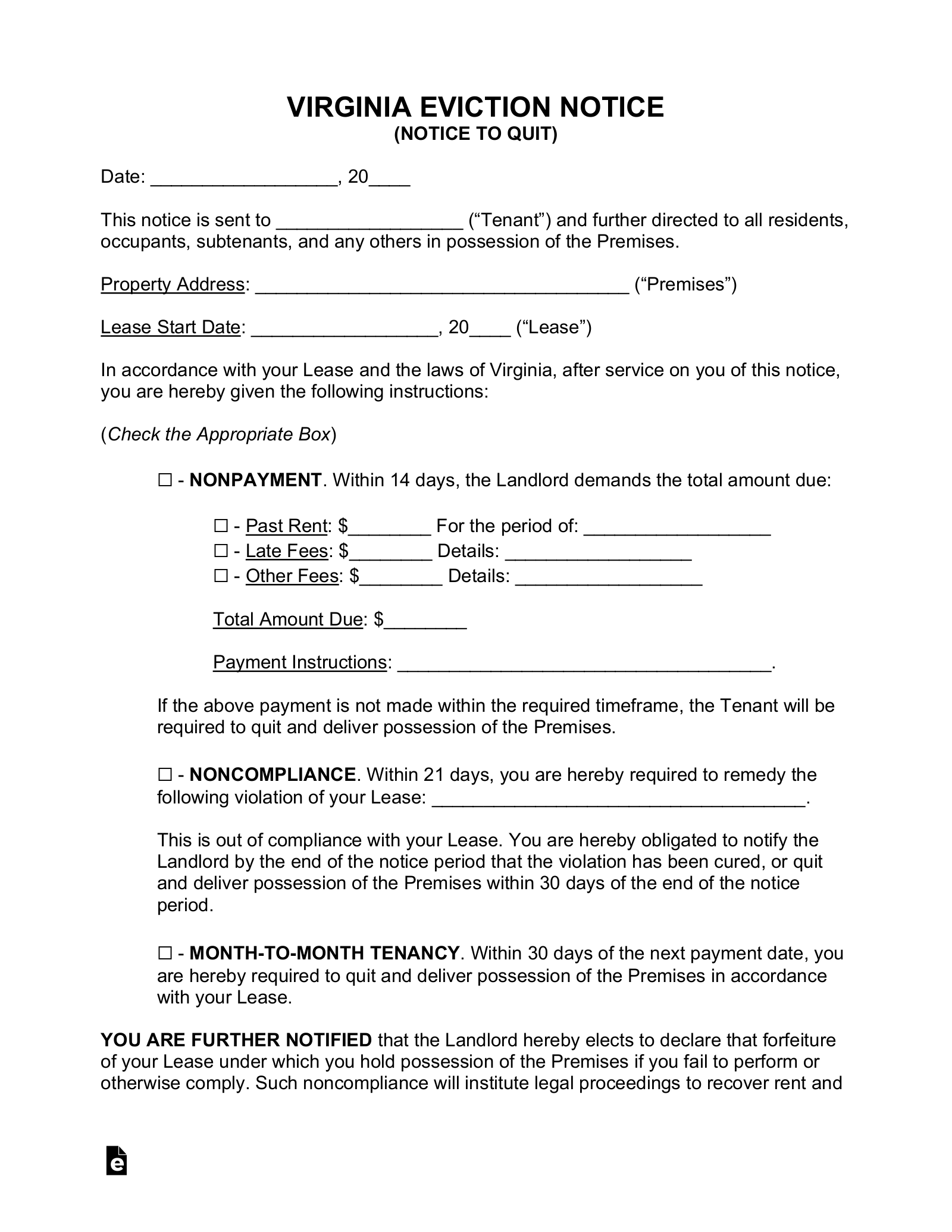Updated April 09, 2024
A Virginia eviction notice is used when a tenant has either failed to pay rent when it is due or has breached other terms of the lease. The first step in the process is to give written notice to the tenant that there is an issue and that they need to respond or face eviction. If the tenant fixes the issue, the lease continues as usual. If not, the landlord will be forced to file an eviction (“Unlawful Entry and Detainer”) at the General District Court.
By Type (3)
 5-Day Notice to Quit (Non-Payment of Rent) – This form may be used when the tenant has failed to pay rent when it is due. The landlord may provide this notice and then wait the requisite 14 days before proceeding with the eviction process. 5-Day Notice to Quit (Non-Payment of Rent) – This form may be used when the tenant has failed to pay rent when it is due. The landlord may provide this notice and then wait the requisite 14 days before proceeding with the eviction process.
Download: PDF, MS Word, OpenDocument |
 21/30-Day Notice to Quit (Non-Compliance) – If a tenant has failed to comply with the provisions of the lease, other than non-payment of rent, the landlord must give 21 days’ notice to allow the tenant to rectify the problem or move out at the end of the 30 day period. 21/30-Day Notice to Quit (Non-Compliance) – If a tenant has failed to comply with the provisions of the lease, other than non-payment of rent, the landlord must give 21 days’ notice to allow the tenant to rectify the problem or move out at the end of the 30 day period.
Download: PDF, MS Word, OpenDocument |
 30-Day Notice to Quit (Month-to-Month Tenancy) – This form is used when a party wants to notify another party that they do not intend to renew a month-to-month tenancy. 30-Day Notice to Quit (Month-to-Month Tenancy) – This form is used when a party wants to notify another party that they do not intend to renew a month-to-month tenancy.
Download: PDF, MS Word, OpenDocument |
Table of Contents |
Court Forms
Summon for Unlawful Detainer (Form DC-421) – Defines the reason for the lawsuit filed against the tenant and provides information about how the individual must respond once sued. The form must be filed by the landlord with the General District Court with jurisdiction over the property.
Request for Writ of Possession (Form DC-469) – After a landlord wins an eviction lawsuit, they can file this document to request a court order for the tenant’s eviction from the premises. The sheriff’s office will serve the court order on the tenant who will then have a minimum of 72 hours notice before being required to vacate.
How to Evict a Tenant (4 steps)
- Provide Notice to Tenant
- File Unlawful Detainer Action
- Receive Court Judgment
- Hire Sheriff to Remove Tenant If Necessary
1. Provide Notice to Tenant
In Virginia, a landlord must provide notice to the tenant to allow them a chance to respond before going to court to begin the eviction process. It is important that the landlord provides written notice and that the notice is delivered to the tenant. The landlord should keep a copy of the notice and have evidence that it was delivered. The landlord may use one of the following types of notice:
2. File Unlawful Detainer Action
If the tenant does not respond to the notice by either fixing the situation or moving out, the landlord may begin the eviction process by going to the General District Court – Civil Division, which has jurisdiction over the area where the property is located. The first step is to file an Unlawful Detainer action.
Filing fees may vary by county. Below are the filing fees for the top three populated counties in Virginia:
- Fairfax County: $126 for claims below $50,000[7]
- Prince William County: $126 for claims below $50,000[8]
- Virginia Beach: $126 for claims below $50,000[9]
After the filing fee has been paid, the court will set a hearing date within 30 days. The landlord must then serve the detainer action on the tenant.
3. Receive Court Judgment
If the tenant either does not show up at the hearing or the landlord prevails in court, the court will issue a judgment for possession, and the landlord can ask for a Writ of Possession.


